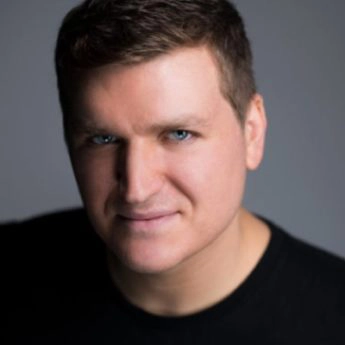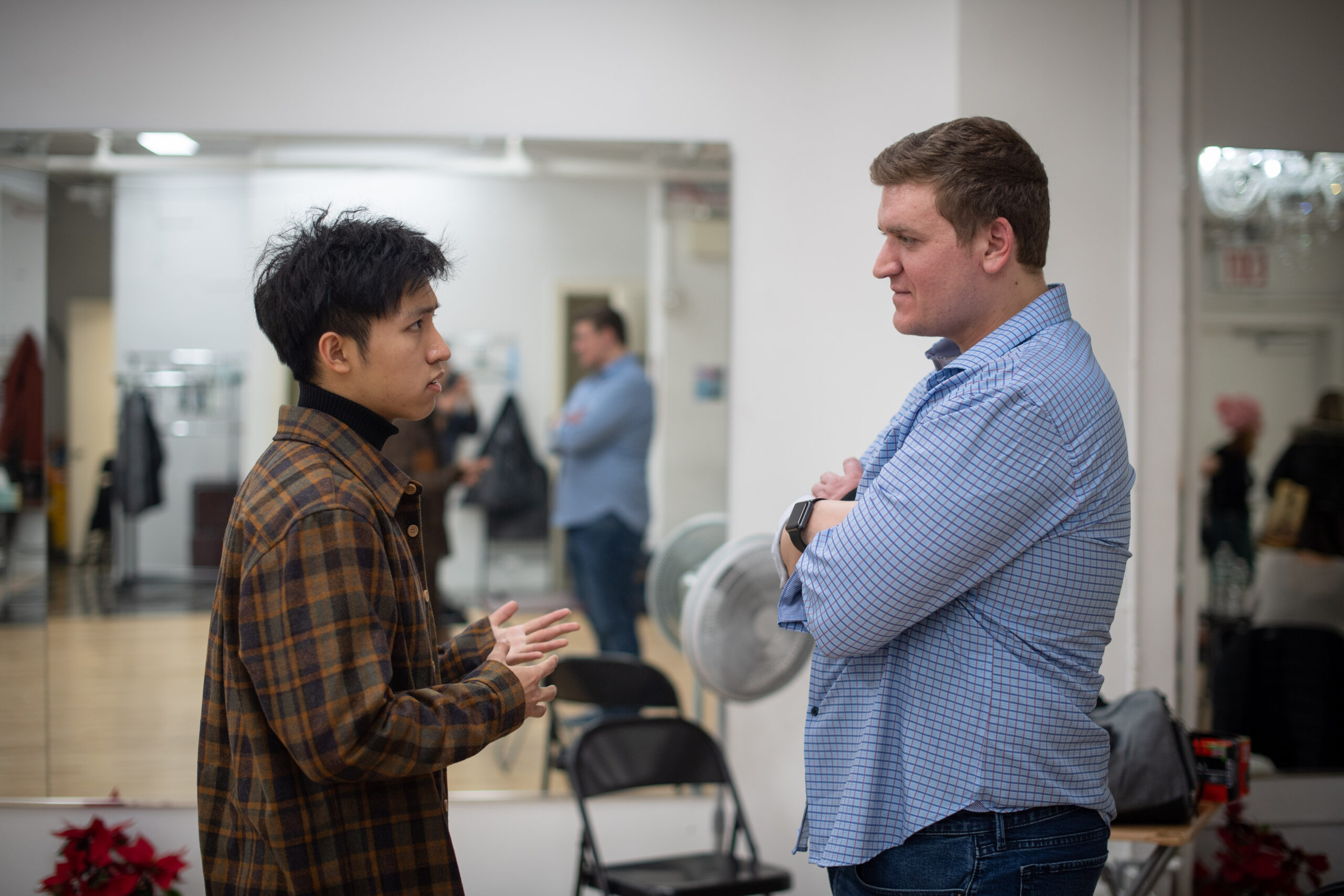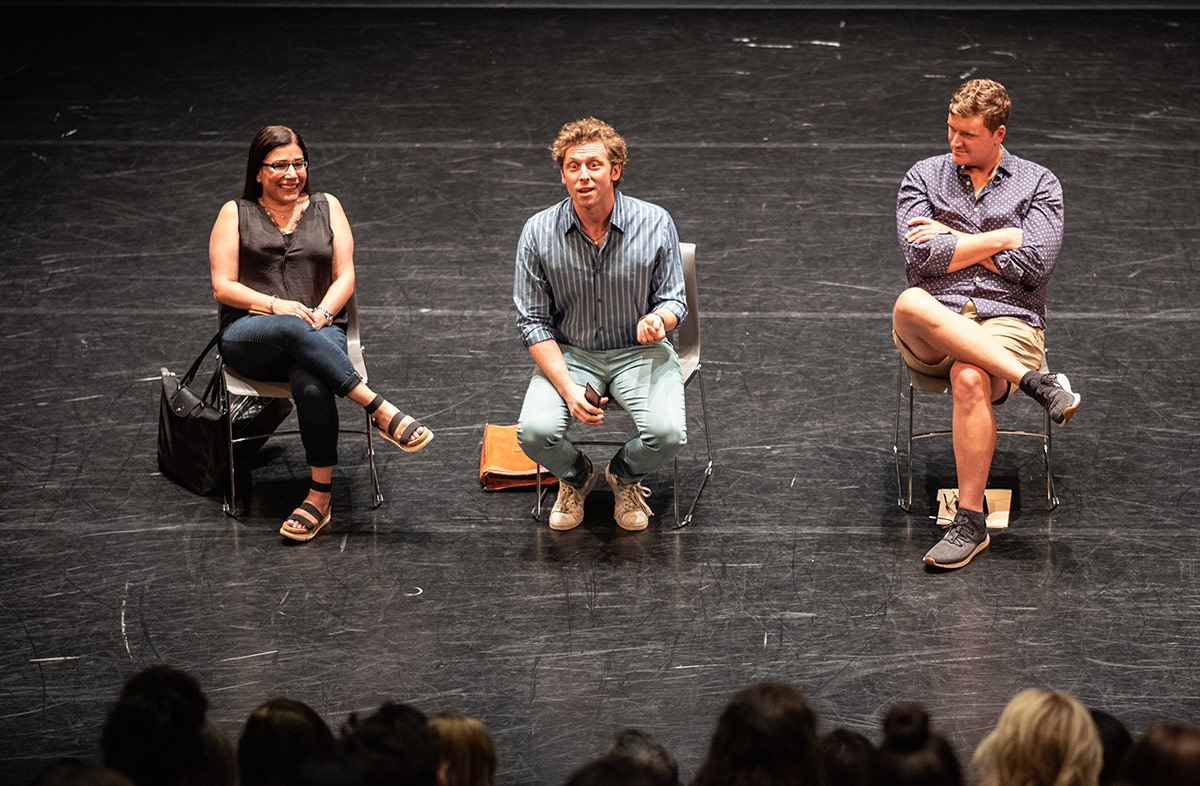Are you looking for the one simple, easy, “quick fix” that will guarantee your success in college auditions? Well, you’ve come to the right place… Sort of.
As many of you may have guessed from that clickbait title (which if it wasn’t clear, is intended in jest!), there is no such thing as a true “quick fix” in the college audition process, or in any artistic process, really. Of course, there are small notes and adjustments you can always make to improve, but I find too often in our social media-inspired culture today that we are looking for that one easy answer, and it just doesn’t work that way.
Too often in our social media-inspired culture today we are looking for that one easy answer, and it just doesn’t work that way.
The answer isn’t easy, but it IS simple, and in almost all cases it WILL do the trick. And that answer is…doing the work.
I talked about this in my takeaway during my podcast episode with Kerry Butler, and it’s one of the ways that I’ve seen the student population change in the 18 years I’ve been working in college prep for Musical Theater/Acting students. Students are coming in with a real knowledge of the basics of the process, and so often they (and their parents, too!) are searching for an “edge” of how they can distinguish themselves from the competitive field. Of course, there is a strategy and there are smarter choices you can make versus less-informed choices. A good coach/mentor can help you with those. However, none of that can subvert doing the actual work on your artistry.
For instance: are you the student who is obsessing over one song choice and continually switching it out for another one? I can promise you your success in this process will be less about what song you ultimately choose and much more about what you choose to do WITH that song.
I can promise you your success in this process will be less about what song you ultimately choose and much more about what you choose to do WITH that song.
There isn’t a magic list of good songs and bad songs where the people who pick from the “good” list get in and the people who pick from the other list don’t. What a terrible way that would be for colleges to select their incoming classes!
Now of course that’s not to say that material choice isn’t important – it’s incredibly important to think consciously about what pieces you choose to represent yourself. However, for many students, this obsession with choices like this that you make before you enter the room (whether that’s the material choice, what you wear, how you format your resume, etc…) can become a defense mechanism to avoid doing the hard, deep investigation of artistic material that has to happen for work to feel truly lived in.
For many students, this obsession with choices that you make before you enter the room can become a defense mechanism to avoid doing the hard, deep investigation of artistic material that has to happen for work to feel truly lived in.
As we begin that artistic process we encounter our potential, where our talent and work have brought us so far, the possibility of failing or succeeding, and that fear can make us pull back and want to start the process over again. (And too often, pull out the phone for solace.)
People do this in relationships too – when the going gets tough, it’s easier to blame the other person and move on to the next relationship as opposed to doing the work on yourself and doing the work together. If you’re someone who has done this in the past artistically, fear not! This is completely, utterly normal – it’s our default mechanism, in fact. Our goal is just to not let it become a habit.
I so often make the comparison of Athletes to Artists, and this same idea applies here. A startling amount of the time, the athletes with the most raw talent are not those who succeed the most. Rather the best indicator of success ends up being those who are best able to put in the work sustainably over a long period of time.
The best indicator of success ends up being those who are best able to put in the work sustainably over a long period of time.
Lebron James is the exception, Michael Jordan is the rule. (Lebron James is also famously an incredibly hard worker – I just mean an exception in being deemed a phenom at a young age and actually following through with being a top all-time player). Most of the best current NBA players started off with a great deal of potential, without a doubt, but most were NOT ranked at the very top of their high school class.
Time and time again we see that hard work and tenacity overcome a talent deficit. And most relevantly, NO amount of sheer talent can be coasted on indefinitely if you’re going to succeed at the highest level. You might succeed in High School on pure talent, you might even succeed in College, but at some point, you are going to flame out if you can’t put in the time and effort to do the work.
At some point, you are going to flame out if you can’t put in the time and effort to do the work.
That last sentence could be read word-for-word to apply to both athletes and artists.
This is all to say, as depressing as this might sound after reading that fantastic blog title, you are very likely NOT one “quick fix” away from nailing your college auditions. You are very likely not one tip, one trick, or one entertaining TikTok video away from the information you need to succeed.
You are very likely not one tip, one trick, or one entertaining TikTok video away from the information you need to succeed.
That’s the bad news. But the good news is that you ARE only as far away from where you want to go as the distance between you and consistent, regular practice. And the tools to help you toward the right kind of practice are easily accessible at your fingertips (and certainly all of your coaches at MTCA are able to help you toward what you need!).
You will be amazed at how much regular practice doesn’t need to be a herculean effort. Small changes, made consistently over time are incredibly effective.
Small changes, made consistently over time are incredibly effective.
We all know this intellectually, but it just goes against the grain of how we WANT it to be. We know if we want to get healthier with our bodies, that small, sustainable changes to our diet and exercise are much more effective than starving ourselves or doing an insane workout program. But are we willing to put in the time and have the patience for that process to take hold?
The same is true artistically – whether you are making subtle improvements to your flexibility in dance, improving your vocal stamina, or trying to improve as an actor, change can happen slowly, slowly, slowly, and then all at once you wake up and go “I’m a different actor”. But that doesn’t happen during a YouTube binge or watching Instagram reels. That comes from putting the phone away and doing productive work on your craft. Even just 30 minutes of the right kind of practice a day can make a huge difference, and quickly too!
Even just 30 minutes of the right kind of practice a day can make a huge difference, and quickly too!
We often hear from our students this effusive praise after the process, “Oh MTCA, we couldn’t have done it without you” or “You got my child into Michigan” or “You made me SUCH a better actor/singer/dancer”, etc… and I always am demure with these comments. This is not because I’m just so humble (anyone who knows me knows I’m quick to say how proud of our team I am!), but because WE didn’t do that work for you. My response is always “YOU got yourself into Michigan”, or “YOU made those improvements as an Actor, I just showed you some tools”. But the point is, it is always the student doing the work, and it just has to be that way.
I’ve told the story on the podcast before of one of my former students who called herself a dancer-first, and had never had an acting lesson before meeting me during the spring of her Junior Year. By the fall of her Senior year, she was one of the best young actors I had worked with and ended up getting into Carnegie Mellon (a very Acting-focused program, where her dance abilities were not a factor, given the lack of a dance audition).
By the fall of her Senior year, she was one of the best young actors I had worked with and ended up getting into Carnegie Mellon.
Now, was I giving her any secret tips or tricks that I wasn’t giving all of my other students? Of course not – she was doing the work. We met weekly, and each week she came in having clearly worked on the pieces significantly and thoughtfully in her own time.
We met weekly, and each week she came in having clearly worked on the pieces significantly and thoughtfully in her own time.
I had assigned her homework after each session, and she had done it to the top of her intelligence and artistic integrity. She had questions and thoughts on the exercises I gave her, and additional thoughts to try out during our time together. Of course, she had natural intelligence and talent as well, but LOTS of young actors do. Not everyone has the work ethic to really stick to a consistent routine and treat it like their job.
And that doesn’t mean that every young actor who is willing to really do the work is going to get into their dream school, nor that innate ability isn’t a big factor (alongside other factors outside of your control), but we do see consistently over the years that the students that do the work tend to succeed in this process and into their careers.
Students that do the work tend to succeed in this process and into their careers.
It is a life skill that separates the wheat from the chaff, and it’s especially important in this competitive field where you cannot rest on your laurels.
So I urge you all to commit to your routine. Let it be realistic and sustainable, and then really, truly do it! If you see any other blogs/articles/TikTok videos where someone says “Do these 3 easy things to be a success”, please run the other way – you are falling victim to an algorithm and an unfortunate wiring of our human brain chemistry. There is no “quick fix” to avoid hard work in this process or in this career, but only the difficult, messy, non-linear work that has been staring you right in the face all along. So now get out of your own way and actually do it!
About the Author

Charlie is a native Pittsburgher and a proud graduate of Carnegie Mellon University, where he studied Acting. As an actor, Charlie has performed for the NY Public Theatre’s “Shakespeare in the Park” (All’s Well That Ends Well, Measure for Measure), the Pearl Theatre Company (Richard II), the Hudson Valley Shakespeare Festival (King Lear, The Three Musketeers, Romeo and Juliet, Love’s Labour’s Lost), The Shakespeare Theatre of DC (Richard II, Henry V, As You Like It, Mrs. Warren’s Profession), Middlebury Actor’s Workshop (Cat on a Hot Tin Roof), The Arts Center of Coastal Carolina (The Unexpected Guest), and the Chautauqua Theatre Company (Much Ado About Nothing, Vaidehi, Ah, Wilderness!). Along with MTCA coaches Ryan Quinn and Katie Hartke, Charlie co-founded and is the Managing Director of Esperance Theater Company — a company that produces classical-based work here in NYC. With Esperance, Charlie has performed in 12th Night, Macbeth, Romeo and Juliet, and Breitwisch Farm. As a teacher, Charlie has been working with MTCA for over 17 years, where he is now a Director of the company along with Leo Ash Evens. Charlie also teaches Acting and College Audition Prep for the Performing Arts Project (TPAP), where he is on faculty each summer. He has also taught for Texas State University, the City University of New York, and the Hudson Valley Shakespeare Festival. As a Teacher and Director, he is able to do two of his favorite things in life: help students to find their authentic selves as artists, and help them find their best fit for their collegiate journey. Charlie also hosts the “Mapping The College Audition” podcast, where he continues that work, and helps demystify this daunting audition process. Charlie is also the proud father to a precocious toddler, partner to an amazing Tony-nominated + Grammy-winning Actress, and a humble Broadway Softball League champion.




